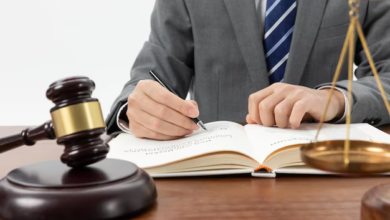Gun Law Violations in Texas Legal Defenses That Work
Gun law violations in Texas can lead to serious penalties. Discover effective legal defenses to fight firearm charges and protect your rights in Texas.

Gun law violations in Texas can carry severe penalties, including heavy fines, loss of firearm rights, and even lengthy prison sentences. However, with the right legal strategy, many of these charges can be challenged or even dismissed. Texas is known for its strong Second Amendment protections, but certain restrictions still apply such as laws against unlawful carry, felon-in-possession Gun Law, and prohibited locations for firearms. Understanding the most effective legal defenses including constitutional challenges, self-defense claims, and procedural defenses can be the difference between a conviction and an acquittal. This article explores the most successful legal strategies for fighting gun charges in Texas.
In conclusion, gun law violations in Texas are serious but not unbeatable. A skilled defense attorney can challenge unlawful searches, prove lack of intent, assert self-defense, or negotiate favorable plea deals. The key is to act quickly and build a strong defense tailored to the specifics of the case. By understanding these legal strategies, defendants can protect their rights and avoid the harshest penalties. If you or someone you know is facing gun charges, consulting an experienced firearms attorney should be the first step toward mounting an effective defense.
Gun Law Violations in Texas Legal Defenses That Work
Texas has some of the most permissive gun laws in the country, but that doesn’t mean firearm-related charges are uncommon. Law enforcement aggressively prosecutes violations, and even minor infractions can lead to life-altering consequences. Whether the charge is Gun Law carry, possession by a prohibited person, or brandishing a weapon, defendants must understand their legal options to avoid conviction. Fortunately, several defenses can be used to fight these charges, ranging from challenging police procedures to asserting constitutional rights.
Common Gun Law Violations in Texas
Texas law regulates who can carry firearms, where they can be carried, and how they can be used. Some of the most frequently charged offenses include Unlawful Carry of a Weapon (UCW) Carrying a handgun without a valid License to Carry (LTC) in restricted areas. Aggravated Assault with a Deadly Weapon Using or displaying a firearm in a threatening manner. Prohibited Locations Carrying a firearm in places like schools, government buildings, or bars. Discharge of a Firearm in City Limits Illegally firing a gun within certain municipal boundaries. Each of these charges carries different penalties, from Class A Gun Law to felony convictions.
Top Legal Defenses Against Gun Charges
Challenging Illegal Search and Seizure
The Fourth Amendment serves as a critical shield against unlawful police searches, providing a potent defense strategy in gun cases. If officers discovered a firearm without a proper warrant, lacked probable cause, or conducted a search without valid consent, your attorney can file a motion to suppress to exclude the illegally obtained evidence. This legal maneuver often proves devastating to the prosecution’s case, as firearms charges frequently rely entirely on the contested evidence.
Lack of Knowledge or Intent
A critical defense against Texas gun charges hinges on proving the defendant lacked knowing criminal intent a required element for many firearm offenses. This applies when someone inadvertently carries into a prohibited location like a school or airport without realizing it was forbidden, or when a previously convicted individual genuinely (but mistakenly) believed their gun rights had been restored. Skilled attorneys emphasize this “lack of knowledge” defense by presenting evidence.
Self-Defense or Defense of Others
Texas’s robust self-defense laws provide powerful legal protection for those forced to use firearms in life threatening situations. The state’s Stand Your Ground Gun Law removes any duty to retreat before using force, while the Castle Doctrine specifically protects those defending their homes, vehicles, or workplaces. To successfully claim self-defense, your attorney must demonstrate you reasonably believed deadly force was immediately necessary to prevent imminent harm or death.
Improper Police Procedures
Law enforcement mistakes during arrest and investigation such as failing to properly Mirandize a suspect, mishandling or contaminating evidence, or violating proper arrest procedures can create critical weaknesses in the prosecution’s case that a skilled defense attorney can Gun Law. These procedural errors may violate constitutional protections against unlawful searches, coerced confessions, or due process violations, potentially rendering key evidence inadmissible in court.
Constitutional Challenges
The evolving legal landscape surrounding Second Amendment rights presents potential defenses against certain Texas gun charges. Following landmark Supreme Court decisions like Bruen (2022), courts now scrutinize whether firearm restrictions align with America’s historical tradition of gun regulation. A skilled defense attorney can challenge charges by arguing the underlying statute unconstitutionally infringes on fundamental gun rights.
Plea Bargains and Diversion Programs
For first-time offenders facing gun charges in Texas, alternative resolutions may be available to avoid incarceration. Prosecutors often offer pretrial diversion programs that allow defendants to complete requirements like firearm safety courses, community service, or probation in exchange for dropped or reduced charges. These negotiated plea deals can prevent a permanent criminal record while still holding offenders accountable. Eligibility typically depends on the nature of the Gun Law, criminal history, and other case factors.
What to Do If Charged with a Gun Crime
If you’re facing gun law violations in Texas, taking immediate and strategic action is crucial to protecting your rights. First and foremost, remain silent when questioned by law enforcement anything you say can be used against you, so politely decline to discuss the case without your attorney present. Next, hire a specialized firearms lawyer who thoroughly understands Texas gun laws and defense strategies, as their expertise can make a significant difference in your case. Simultaneously, begin gathering all potential evidence that could support your defense, including surveillance footage from the incident, witness contact information and statements, and any relevant permits or documentation regarding your firearm.
Read More: Navigating the U.S. Immigration Process in California a Step-by-Step Legal Guide
Conclusion
Gun law violations in Texas can have life-altering consequences, but with the right legal strategy, these charges can often be successfully challenged or mitigated. As we’ve explored, defenses ranging from Fourth Amendment violations to self-defense claims provide powerful tools for protecting your rights. The complexity of Texas firearm laws means that every case requires careful examination of the circumstances, police procedures, and applicable statutes to build the strongest possible defense.
When facing gun law violations in Texas, immediate action is crucial. Consulting an experienced firearms attorney should be your first step, as early intervention can significantly impact your case’s outcome. Whether through suppression of evidence, constitutional challenges, or negotiated resolutions, an effective defense can mean the difference between preserving your freedom and suffering severe penalties. Remember that in Texas’ complex legal landscape, knowledge of both gun laws and defense strategies is your most valuable weapon.
FAQs
Can I carry a gun without a license in Texas?
Texas allows permit less carry (constitutional carry) for most Gun Law, but some locations still require a License to Carry (LTC).
What’s the penalty for a felon caught with a gun?
Possession of a firearm by a felon is a third-degree felony, punishable by 2–10 years in prison.
Can I use a gun in self-defense in Texas?
Yes, Texas law allows lethal force if you reasonably believe it’s necessary to prevent imminent harm.
What if police found my gun during an illegal search?
An attorney can file a motion to suppress the evidence, potentially getting the case dismissed.
Are there alternatives to jail for gun charges?
First-time offenders may qualify for probation, diversion programs, or plea bargains to avoid prison.











